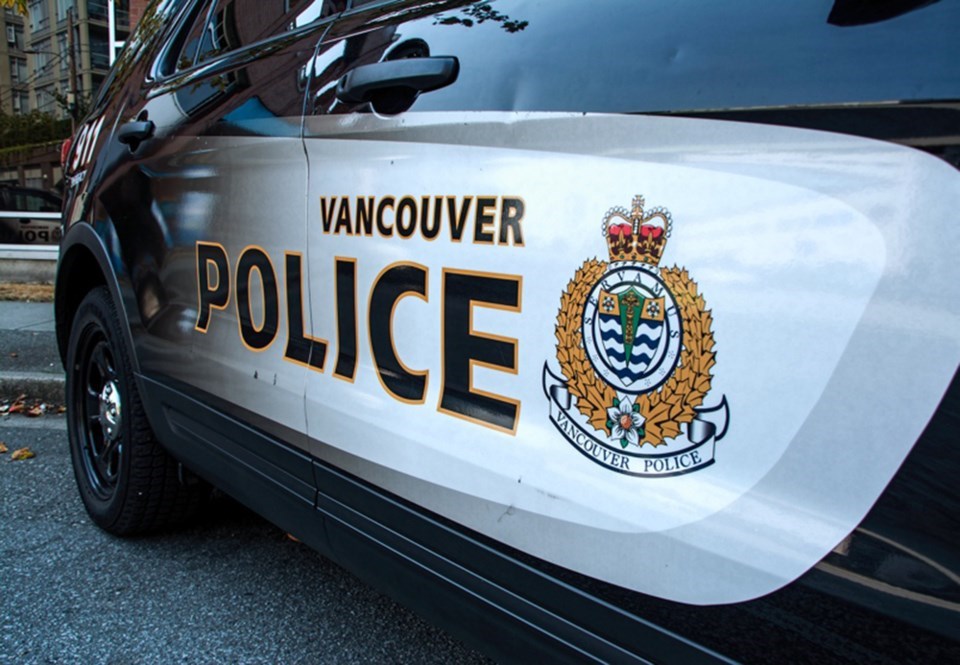The Vancouver Police Department (VPD) must train officers dealing with Aboriginal people to do so without discrimination and to understand the “legacy of colonialism and ongoing distrust of the police,” B.C.’s Human Rights Tribunal has ruled.
And, the board ordered, the Vancouver Police Board must pay Deborah Campbell $20,000 in compensation for injury to her dignity, feelings, and self‐respect.
Tribunal member Devyn Cousineau heard that, in July 2016, Campbell witnessed police arrest her 19‐year‐old son.
“I find the police officers were poorly equipped to meet Ms. Campbell’s specific needs as an Indigenous mother, that they interpreted her conduct through a lens of suspicion and stereotype, and that they ultimately responded to her in a way that was disproportionate and unjustified by her own behaviour,” Cousineau wrote.
That aspect of the police response, Cousineau wrote, supports “an inference that the officers acted subconsciously based on stereotype and prejudice.”
VPD spokesperson Const. Tania Visintin said the city’s legal department is reviewing the decision.
“We anticipate that review will take several days,” Visintin said. “Our cultural competence training is ongoing and always evolving. Our goal is to ensure our members understand and implement culturally appropriate and trauma-informed practices.”
The situation arose when police were called about a man yelling and banging on a door, trying to enter a building. He turned out to be the victim of an alleged assault. The victim told police he had been walking down the street when a woman pulled a knife and started chasing him, threatening to stab him.
The victim described the woman, saying she had been with a young man police said turned out to be Campbell’s son.
Police found the two and stopped them, a scene Campbell witnessed while walking her dog.
An officer said the son was taken into custody as the largest person there. He said Campbell then began yelling at him.
“She was roughly and physically separated from her son and blocked from witnessing his arrest. Her questions about what was happening went largely unanswered, and she was warned that her own behaviour could justify a charge for obstruction of justice,” Cousineau wrote said.
These events were traumatic for Ms. Campbell, the decision said. Campbell said that the treatment discriminated against her on the basis of her race, colour and ancestry.
The police board argued officers’ were appropriate in the circumstances, calling those actions evidence of a non‐discriminatory explanation for the conduct.
Campbell, though, explained that her cultural role as a mother is a lifelong one.
“That means protecting my son, taking care of my son, that means ensuring his safety as much as I can. It means feeding him, eating with him, talking to him every day, caring about him. It doesn’t end when they turn 19 in our culture,” she told the tribunal.
“Ms. Campbell was afraid for her son. I accept her testimony about this,” Cousineau said.
Other officers arrived. Campbell said one officer said, referring to her, “get her out of here.”
One officer said Campbell “was very angry at the police in general, and voicing concerns about police abuse.”
Police disputed Campbell’s testimony that two constables grabbed her by an arm and dragged her away from her son. She disagrees with the officers that she was merely “escorted” away, but rather describes this as rough treatment.
Cousineau found one officer took Campbell roughly by the arm and “propelled her down the street.”
A witness described Campbell as “frustrated, scared, worried, and confused.”
“She was asking the officers where they were taking her son and why he was being arrested. The officers did not answer her questions, telling her that it was none of her concern,” Cousineau wrote.
One constable described Campbell as “an erratic, uncooperative and verbally hostile woman,” saying she was inciting a growing crowd.
Cousineau found police would not answer questions about the son; stonewalled her in response to questions, and threatened to charge her with obstruction of justice; blocked her ability to witness her son’s arrest and ensure his safety; and treated her as an annoyance and an “erratic, uncooperative” woman rather than a mother with legitimate concerns about her son.
Cousineau accepted evidence that Indigenous people have an ongoing distrust of police and of the state’s attempts at interfering with their children. On the latter issue, she cited residential schools and the Sixties Scoop of children by welfare groups.
“When dealing with an Indigenous parent, they (police) should have some understanding of the legitimate fears the parent would have about ensuring the safety of their child against state actors and be equipped to recognize and address those fears,” Cousineau said.
Cousineau said the only formal training the officers received about policing Indigenous people was a half-day course in 2015. Three of the officers had never heard of the Truth and Reconciliation Commission, and had heard of the Missing and Murdered Indigenous Women report, but only through the media, Cousineau said.
But, Cousineau added a caveat: “There is no evidence that any of the officers consciously subscribe to invidious stereotypes about Indigenous people.”
The police board was also ordered to pay Campbell $1,500 in costs.
This story originally appeared in Vancouver Is Awesome

.png;w=120;h=80;mode=crop)

